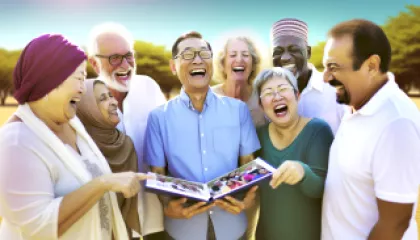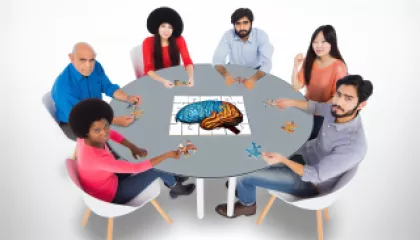Every life is a tapestry of stories, woven with threads of joy, sorrow, triumphs, and tribulations. My name is Marty Hernandez, and I have dedicated the past three years to helping individuals rediscover their vibrant colors, especially when they feel their tapestry has faded.
At the heart of my practice lies a fervent belief in the transformative power of advocacy in mental health. It's not just about navigating the complexities of our minds but creating an environment where every voice is heard, and every concern is validated. This belief has been my compass, guiding me to empower those who feel voiceless, helping them find the courage to advocate for themselves and others.
The journey of aging and the quest for self-esteem are intertwined paths that many of us walk with uncertainty. I've seen firsthand how the years can either weigh heavily on one's shoulders or be worn as a cloak of wisdom and strength. Drawing from my own experiences and the resilience I've witnessed, I strive to inspire my clients to view aging not as a loss but as a rich season of life, ripe with opportunities for growth and self-discovery.
Overcoming shyness is another realm where I have passionately devoted my energy. Shyness can be a silent shadow that follows us, often misunderstood as mere introversion or preference for solitude. Yet, beneath it lies a universe of untapped potential and unspoken thoughts yearning for expression. By fostering an environment of unconditional acceptance, I encourage my clients to step into the light, to speak their truth, and to embrace their unique voices.
My approach is rooted in the conviction that every individual holds within them the blueprint for their own healing and growth. Through compassionate listening, empathetic understanding, and genuine connection, I endeavor to unlock this potential, guiding my clients as they embark on a transformative journey towards a more fulfilling life.
In a world that sometimes seems adrift in the superficial and ephemeral, I stand as a beacon of hope, advocating for the deep, the meaningful, and the enduring. Together, we can explore the depths of your inner world, uncover your hidden strengths, and chart a course towards a future brimming with confidence, purpose, and joy.
Let's weave a new chapter in your life story, one where you are the hero of your own journey, equipped with the tools and confidence to face whatever comes your way. I am here to support you, to listen, and to guide you as you rediscover the beauty and resilience within.






